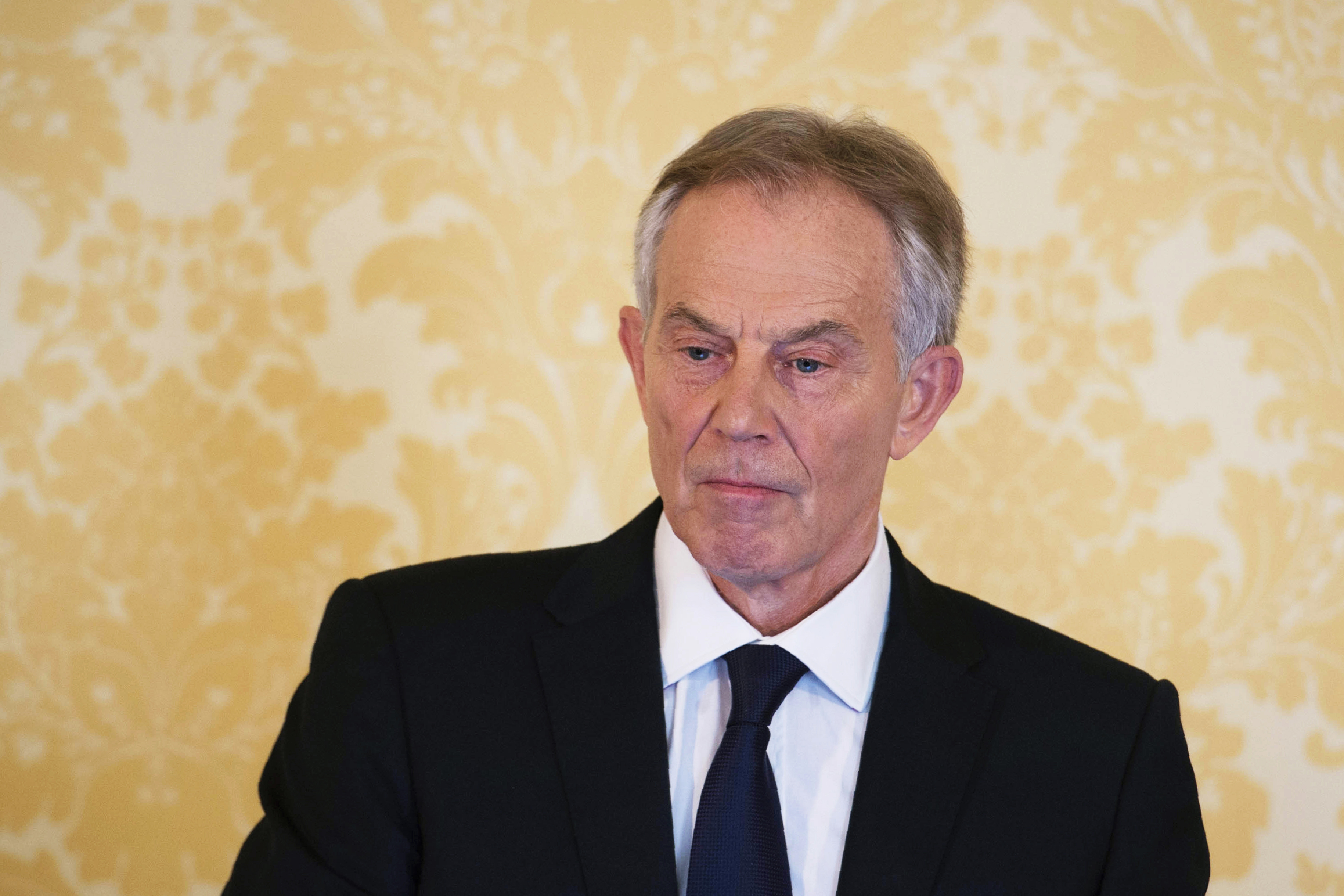
Former British prime minister Tony Blair voiced “sorrow, regret and apology” after a damning report on the Iraq war Wednesday, but said he did not mislead parliament and did not regret toppling Saddam Hussein. / AFP PHOTO /
by Alice RITCHIE
LONDON, United Kingdom (AFP) — Former British prime minister Tony Blair’s case for going to war in Iraq in 2003 was based on flawed evidence and woefully executed, a hard-hitting official inquiry pronounced on Wednesday.
The long-awaited Chilcot report offered a damning verdict on Britain’s role in the US-led war, detailing the flawed intelligence, questionable legal basis and inadequate preparation for the occupation.
The report said Britain deployed troops before diplomatic options had been exhausted.
It also highlighted how Blair wrote to president George W. Bush in July 2002, the year before the war saying: “I will be with you, whatever.”
The inquiry found that “military action in Iraq might have been necessary at some point. But in March 2003 there was no imminent threat from Saddam Hussein,” the Iraqi dictator.
Blair mounted a passionate defense of his decisions, telling reporters “I believe we made the right decision and the world is better and safer” without Hussein in a two-hour press conference.
His voice cracking with emotion, Blair said he had “more sorrow, regret and apology than you may ever know or can believe” for some mistakes in the planning of a war that deeply divided Britain.
Anti-war protesters rallied in London as the report was released, shouting: “Blair lied, thousands died” and “war criminal Tony Blair.”
Newspaper front pages were scathing, with The Times describing it as “Blair’s private war” and the Daily Mail calling the former prime minister “A monster of delusion”.
Iraq’s descent into violence and loss of life following the invasion saw 150,000 Iraqis killed by the time most British troops left in 2009.
In Iraq, still wracked by violence and reeling from a suicide bomb that killed at least 250 in Baghdad this week, the findings counted for little.
“What report?” Iraqi foreign ministry spokesman Ahmed Jamal responded when asked for comment.
“The report… will not change anything — all this is empty talk,” said Zainab Hassan, aged 60.
‘A catastrophe’
The war was justified at the time by claims that Saddam had weapons of mass destruction, but they were never found and the intelligence was later withdrawn.
Inquiry chairman John Chilcot laid the blame for this firmly on spy chiefs, clearing Blair’s officials of “improperly” influencing a key intelligence paper published in September 2002.
The report also criticized Blair for failing to challenge Bush on the lack of planning for the post-invasion phase — and dismissed his assertion that the impact of local militia and Iran could not have been predicted.
“There were no lies, parliament and cabinet were not misled, there was no secret commitment to war. The intelligence was not falsified and the decision was made in good faith,” said Blair, who was prime minister from 1997 to 2007.
Shortly afterwards current Labor Party leader Jeremy Corbyn — a top figure in the anti-war campaign — directly contradicted his predecessor Blair.
“The invasion and occupation of Iraq was a catastrophe,” Corbyn, who formed the Stop the War coalition, said in a speech to the families of British soldiers who died.
“I now apologize sincerely on behalf of my party for the disastrous decision to go to war in Iraq,” he said.
Relatives of some of the 179 British soldiers who died in Iraq said they would scrutinise the findings for possible grounds for legal action against Blair and other officials.
“The inquiry has confirmed all our fears that these young men and women were deployed on the back of a falsehood,” said Roger Bacon, whose son Matthew, 34, died in 2005.
‘Went badly wrong’
The legality of the invasion was not in his remit, but Chilcot said the process of deciding the legal basis for war was “far from satisfactory”.
“We have concluded that the UK chose to join the invasion of Iraq before the peaceful options for disarmament had been exhausted. Military action at that time was not a last resort,” he said.
The families are not the only ones considering legal action against Blair — a cross-party group of MPs is also looking into the possibility, including of taking a case to the International Criminal Court.
The war, which at one point saw 46,000 British troops deployed, mostly in southern Iraq around the strategic oil hub of Basra, still looms large over British politics.
Britain’s scarring experience in Iraq has made it deeply wary of committing ground troops to international military interventions in countries like Syria and Libya.
Retired civil servant Chilcot said his report was “an account of an intervention which went badly wrong, with consequences to this day”.
In a statement to the House of Commons, Prime Minister David Cameron said: “We cannot turn the clock back but can ensure that lessons are learned and acted on”.
© 1994-2016 Agence France-Presse







